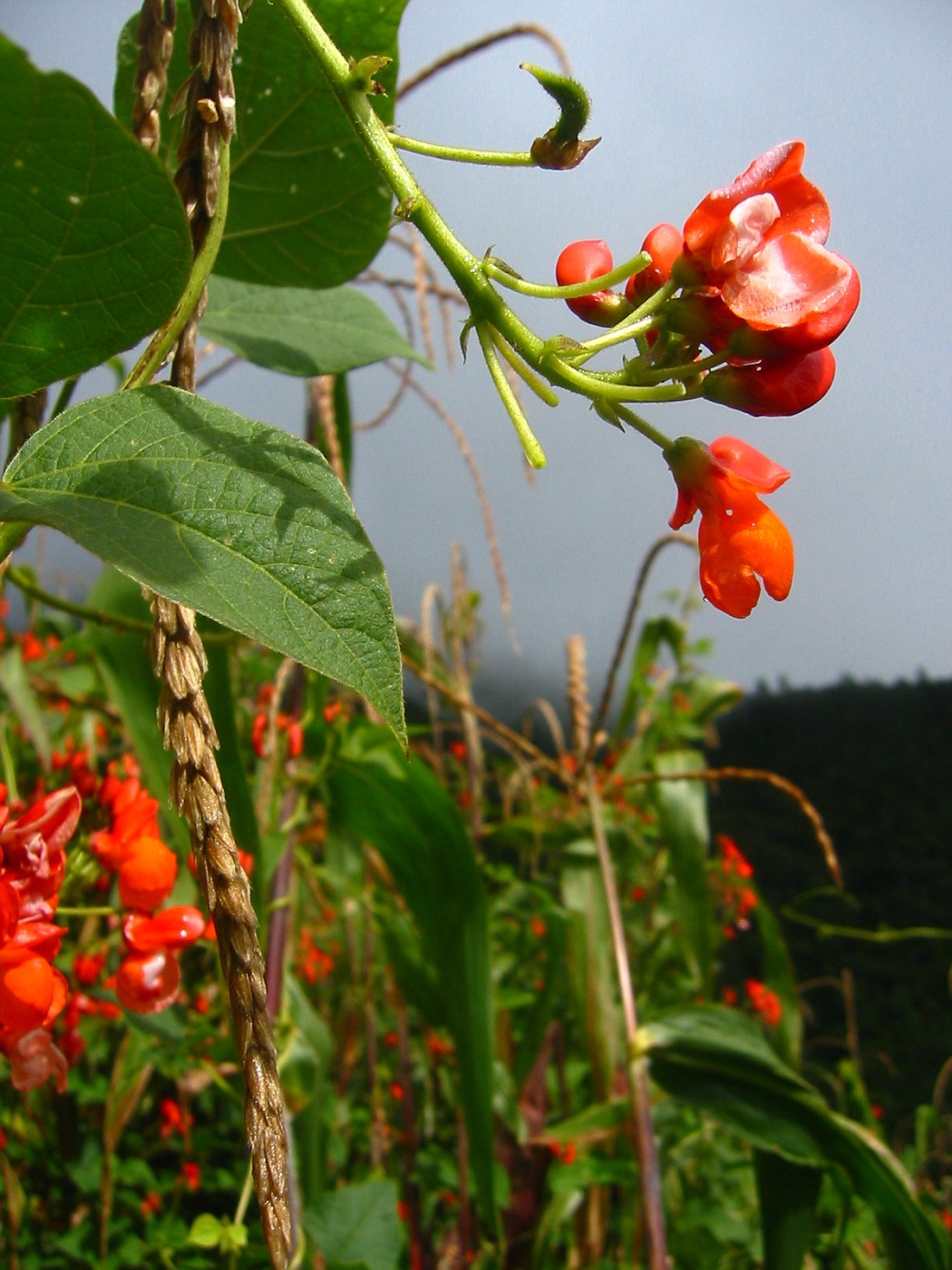
bean and corn field outside of Nebaj
Like a child who has witnessed a tragedy beyond their vocabulary of comprehension, my mouth has been closed in silent surrender of the search for fitting words that don’t exist.
For who am I to speak? In every country I travel to, and with every firsthand story I hear, I am forced to look at the color of my skin, my country’s obvious inheritance, my deafness to ugly truths, my addiction to numbness, my aversion to action and realize that although I may be a witness, I am anything but innocent.
The following words aren’t mine; they belong to Santos and Santiago, our Guatemalan walking guides that led us through the Cuchumatanes mountains (and the history of the “civil” war) in the highlands of the Ixil Triangle in North Western Guatemala.
******
I indicate to the long grass growing in thick patches along the trail. Santos kneels down, grabs a patch of it, pulls on it to demonstrate its strength and begins to explain to me its history as he has done every other plant on the path…
“This is an excellent grass. It’s very, very strong. We used to use this grass to make roofs for our houses. The roofs would last through more than thirty years of sun and rain before needing to be replaced. But in the 80’s, when the army came, they too realized how functional these roofs were to their needs. They learned that by setting fire to these roofs, they could burn an entire village down with one torch. This grass still makes for a perfect roof, but we don’t ever dare use this grass for construction of our houses again. Now we use concrete, because it doesn’t burn.”
When Santos finds me admiring a purple flower with vines crawling low to the ground he explains, “Yes, it’s a beautiful flower. Its roots are edible. After the army burned down the villages, the survivors escaped by hiding in these mountains. The army killed all our livestock and burned down our bean, potato and cornfields as well, so we had nothing to eat. But our ancestors lived in these mountains, and we remembered how to live off of what grew wild. This flower’s roots are similar to that of a potato. We had no salt, but we mixed it with wild herbs and ate this for sustenance for the years that we hid in the mountains.”
When we pass through a small town, Santos stops to explain, “This is Acul. After they bombed it and burned it down, the Guatemalan government returned, resurrected it and called it the first “model village,” an example of a new order of discipline and development. They forced every man in the town to join the, “civil patrols,” which they instructed on how to clean the town of “subversives.” Anyone suspected of siding with or aiding the guerillas was tortured, murdered or “disappeared.” In this way the government turned neighbor upon neighbor and brother upon brother. In this way, they turned our people upon our people.”
We sit down to dinner in a small wooden house with dimensions no bigger than 20 by 8 feet. A brand new and full drum set takes up half the space of the house and an American flag spans the width of one wall. Obviously a son of this household has successfully crossed the border and is sending cash and presents home. I ask Santiago, our other guide, of the risks of trying to cross the border into the United States.
“Risks? Yes. There are risks. Many people die trying to cross the border. But what is that risk when you face death every single day of your life in Guatemala? When you watch your brothers and sisters die here of malnutrition, what is the risk of crossing the border to a country where you can make in one month more than what a Guatemalan can toil for twelve hours a day in manual labor to make in one year? “
He continues…
“When I was seven years old, my parents both died. I had four younger siblings. But they all died from malnutrition. To survive I went to the market and stole fruit; a mango, some bananas, a melon. I used to cut down branches from avocados trees and bury the fruits in the ground like a dog. Then I’d return in a few days and dig them up. I didn’t have salt. I didn’t even have tortillas. But I would eat the ripened avocados and they kept me alive. When I was 11, I went to the coast of Guatemala where I found work on a sugar cane plantation . After working for a month, I got my first money. I went out and used all that I had earned to buy two pairs of pants and two new shirts. And the next month, I had enough money to buy myself a pair of shoes. Wow, do I remember that day! I felt like I was in heaven. I was so proud that my new shoes felt like they never touched the ground.
It was always my dream to travel on ships to far away lands, so one day I went to the boat docks and asked for a job on one of the fishing boats. The boss gave me a job. And I was so happy. There, I met my wife. Before I knew it, I was married and had a new baby son. I was 18 years old. But I had nothing. No house. No land. We moved back to the highlands. My wife was pregnant again. I wanted to go to school and study. But then, one day, I realized that I didn’t want my children to live such a hard life as I did. I realized that they didn’t know how to work hard, but I did. So I decided that I would work hard my whole life so that I could provide a life to my children where they could go to school and reach the dreams that I always wanted for myself.
My first son, now he’s a policeman with a uniform and a motorcycle and a helmet and dark glasses. And my second son? In two years he will finish his schooling to become a teacher. And my baby girl; she knows how to type and is very good on computers. And you know what I have in my house? We have a toilet made out of white porcelain. Not even the teacher in my village has a toilet made out of white porcelain.
All I’ve ever wanted is for my children to have what I didn’t; for them to be able to purse the dreams that I couldn’t. You must respect your parents. For this is the desire of every parent, in Guatemala or in the United States; for their children to have the opportunities that they didn’t. It makes me crazy to see people fighting with their mother or father or brother or sister. For this is the only thing I still wish with all my heart. I would give anything to only be able to say to my family, “I love you, Mom.” “I love you, Dad.” “I love you, brother.” “I love you, sister.”
They are not here, and so I cannot tell them these things. But yours are. So don’t fight. Give thanks to God that you have your family. Respect them and tell them you love them.”
******
<More information on the massacres that took place in the Nebaj area in the early 1980s.
******
(world photogallery) (about sol) (some stories) (LeapNow.org) (travel disclaimer) (packing list)  (photogallery guestbook)  (blogger profile) (World Nomads Travel Insurance) (
target=”new”>WhereThereBeDragons.com)  (Auroville) (<a href=”https://www.seekingsol.com/sol.rss
” target=”new”>rss feed)
